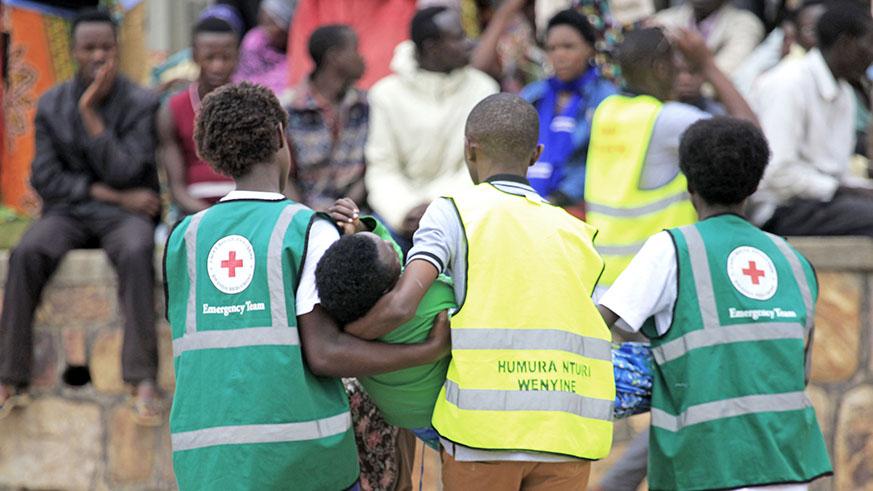
Kelly Rwamapera, The New Times
At least 50 per cent of the youth in Rwanda were born after the 1994 Genocide against the Tutsi and one would expect less or no cases of trauma among this generation that never witnessed the atrocities of 24 years ago.
But during every commemoration period, new cases of trauma come up especially among the young people, even more than the older generation who witnessed firsthand the Genocide.
This was at the centre of discussions at a meeting that brought together youths from across the country and officials from the Ministry of Youth, and Never Again Rwanda, a local organisation, as part of the preparations for the forthcoming 24th commemoration of the Genocide.
The commemoration activities are slated to start on Saturday, April 7.
While opening the meeting, the Minister for Youth, Rosemary Mbabazi, told over 170 youths and personnel that the the government is doing everything possible to have a healthy people and a wealthy nation.
The minister said that the youth, irrespective of their family background, suffer trauma mainly during the commemoration of the Genocide, urging them to get actively involved in commemoration activities which she said was therapeutic.
“We recommend that you get so actively involved in government programmes designed to occupy you as you commemorate. Share your feelings with others and make sure you are not alone for a long time,” she told the youth.
She said that several discussions have been organised at universities in the country to explain to the youth on how to overcome trauma. Professionals will facilitate the discussions.
Intergenerational trauma
According to Prof. Vincent Sezibera, a clinical psychologist at the University of Rwanda (UR), trauma that manifests itself from one generation to another is called intergenerational trauma.
He said that trauma in Rwanda started manifesting itself in the immediate aftermath of the Genocide against the Tutsi, and that progressively, its management has improved.
“The Jews didn’t get that chance in the immediate aftermath of the Holocaust because they were in concentration camps, then they had to resettle back into their country so there was no time for parents to sit down and talk to their children about the Holocaust,” he said.
He said that, as a result, trauma related to the Holocaust has been passed on three generations.
“I have talked to both Jews and Germans and found that there are many Jewish families who still suffer their grandparents’ trauma as well as Germans with a vacuum of fear and guilt,” said Sezibera.
The Holocaust was a genocide committed during World War II in which Adolf Hitler’s Nazi Germany, aided by its collaborators, systematically murdered some six million European Jews, around two-thirds of the Jewish population of Europe, between 1941 and 1945.
How trauma is transmitted
Philbert Uwizeyimana, a youth from Ngoma District, cited a case a Genocide survivor always hid from their children and cried during much of the commemoration period as they grieved loved ones and recalled what they went through during that dark period.
They did not want their children to see them cry but little did they know that all the time they were being spied on by their children.
Seeing their parents cry, the children would also hide from them and cry, hence trauma was unconsciously passed onto them.
“The family was eventually helped to discuss the atrocities of Genocide they suffered together with a few other friends”
Medics recommend that trauma victims disclose their emotions to people close to them, especially their children, so they know the truth because when they discover it by themselves it becomes too heavy to bear.
